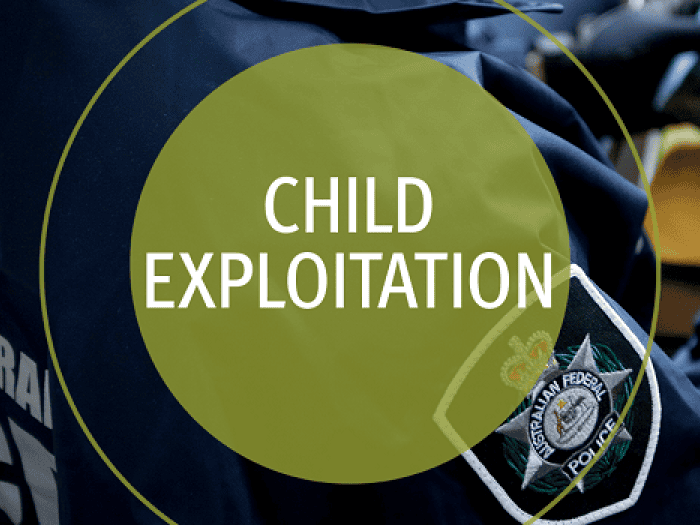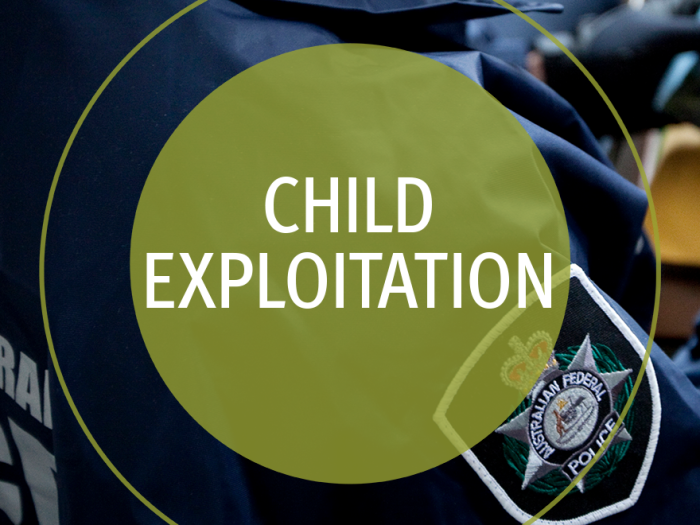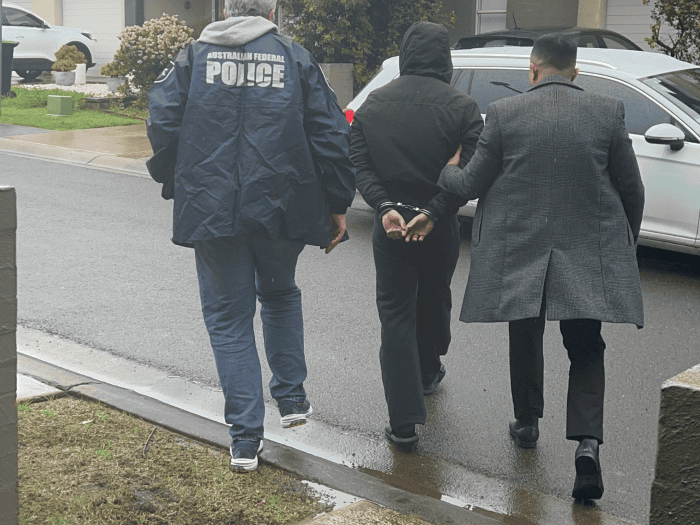Sydney man charged over alleged sexualised conversations with minor online
Editor’s note: vision of the arrest is available via Hightail.
A Turramurra man, 23, is expected to appear in Hornsby Local Court today (12 June, 2025) charged with allegedly grooming a minor online and making plans to meet them.
Investigations began in February, 2025, after the AFP-led Australian Centre to Counter Child Exploitation (ACCCE) received a report from a member of the public involving their child.
The report alleged the child was contacted on an instant messaging platform by an online user who claimed to be 17.
The online user allegedly befriended the minor and asked for their conversations to move to a different platform. The user then allegedly engaged in sexualised conversation and suggested they meet in person.
With the assistance of the ACCCE, AFP investigators allegedly linked the Sydney man to the username behind the illegal activity.
A search warrant was executed at the man’s North Shore home in Turramurra today (12 June, 2025) where investigators seized a phone and laptop which will undergo further forensic examination.
The man was charged with:
- One count of possessing or controlling child abuse material, obtained or accessed using a carriage service, contrary to section 474.22A of the Criminal Code (Cth). This offence carries a maximum penalty of 15 years’ imprisonment.
- Two counts of using a carriage service to transmit indecent communication to a person under the age of 16, contrary to 474.27A(1) of the Criminal Code (Cth). This offence carries a maximum penalty of 10 years’ imprisonment.
AFP Detective Acting Inspector Emmanuel Tsardoulias said the AFP was relentless in its pursuit of offenders seeking to harm children online, while also stressed the importance of parents and guardians to be aware of their child’s online activity.
“Parents, caregivers and the community are the first line of defence when it comes to protecting our children,” Det a/Insp Tsardoulias said.
"Supervision is not only critical to helping prevent an incident happening but can also help adults to quickly take action if they need to alert law enforcement.
“We encourage parents and carers to have open and non-judgemental conversations with their children about their online activity. It might be as simple as asking what apps they’re using and how they're using them – or, better yet, downloading an app yourself and learning how it works. You don't need to be a technical expert and taking an interest can make a difference.”
The AFP and its partners are committed to stopping child exploitation and abuse and the ACCCE is driving a collaborative national approach.
The ACCCE brings together specialist expertise and skills in a central hub, supporting investigations into online child sexual exploitation and developing prevention strategies focused on creating a safer online environment.
Members of the public who have information about people involved in child abuse are urged to contact the ACCCE. If you know abuse is happening right now, or a child is at risk, call police immediately on 000.
If you, or someone you know, is impacted by child sexual abuse and online exploitation, support services are available.
Research conducted by the ACCCE in 2020 revealed only about half of parents talked to their children about online safety. Advice and support for parents and carers about how they can help protect children online can be found at the ThinkUKnow website, an AFP-led education program designed to prevent online child sexual exploitation.
For more information on the role of the ACCCE, what online child sexual exploitation is and how to report it visit the ACCCE website.
Note to media
Use of term 'CHILD ABUSE' MATERIAL not ‘CHILD PORNOGRAPHY’
The correct legal term is Child Abuse Material – the move to this wording was among amendments to Commonwealth legislation in 2019 to more accurately reflect the gravity of the crimes and the harm inflicted on victims.
Use of the phrase ‘child pornography’ is inaccurate and benefits child sex abusers because it:
- indicates legitimacy and compliance on the part of the victim and therefore legality on the part of the abuser; and
- conjures images of children posing in 'provocative' positions, rather than suffering horrific abuse.
Every photograph or video captures an actual situation where a child has been abused.





